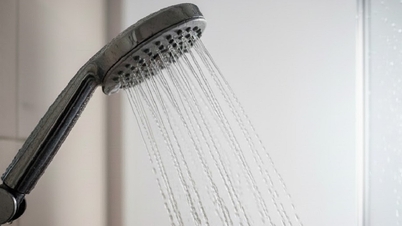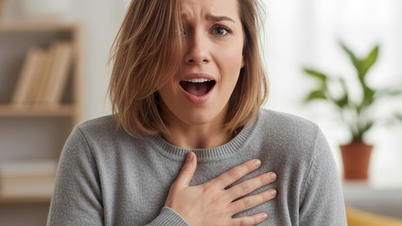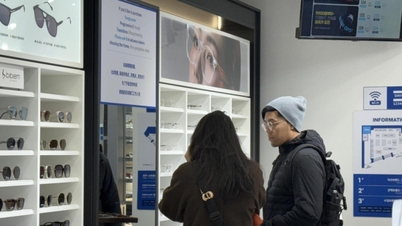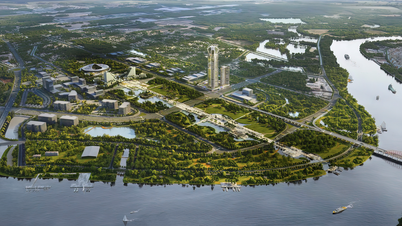It's best to eat breakfast or a light snack rich in protein before drinking coffee with limited sugar and dairy. (Source: Pixabay) |
The effect of coffee in reducing visceral fat.
According to Eating Well , a 2025 study of 45,000 people showed that those who drank coffee (an average of 1.7 cups per day) had significantly lower visceral fat than those who did not drink coffee.
A small amount of visceral fat can protect abdominal organs, but too much visceral fat increases the risk of cardiovascular disease and affects aesthetics.
Experts have long believed that caffeine's ability to boost metabolism is the primary reason coffee can promote weight loss. Several studies have shown that coffee can increase metabolic rate by 5% to 20% for at least 3 hours after consumption.
According to Beth Conlon, a licensed nutritionist in New Jersey and founder of the From the Start Nutrition brand, chlorogenic acid and cafestol found in coffee are two antioxidants that may help reduce visceral fat.
An expert with nearly 20 years of experience in nutrition and weight loss stated: "Studies show that chlorogenic acid can reduce belly fat, body weight, and waist circumference. It is believed that these compounds may affect metabolism and fat breakdown, suggesting a potential mechanism behind coffee's effect on visceral fat."
Dr. Beth added that caffeine also reduces appetite, thereby decreasing calorie intake and indirectly reducing belly fat over time. In addition, incorporating more antioxidants into your diet is another way to increase the chances of reducing visceral fat.
When is the best time to drink coffee to maximize its effectiveness in reducing visceral fat?
Eating Well suggests that the optimal time to drink coffee depends on several individual factors, such as each person's caffeine metabolism rate, age, occupation, specific type of coffee, and the use of medications or supplements.
Therefore, there is no single fixed time that suits everyone. Each time of day has its own advantages.
According to a 2017 study by Anna Gavrieli—who holds a PhD and Bachelor's degree in Dietetics and Nutrition, and a Master's degree in Sports Nutrition—drinking coffee after a meal, rather than before, is more effective in reducing hunger.
American twin experts Tammy and Lyssie, owners of the fitness and nutrition brand Nutrition Twins, say that drinking coffee before meals can help reduce calorie intake in subsequent meals.
Experts point out the advantages of drinking coffee before meals: "Coffee contains caffeine, which has a thermogenic effect and speeds up metabolism, helping you burn more calories. Studies have shown that it can help reduce BMI (body mass index), weight, and body fat. Coffee can also suppress appetite and reduce hunger."
Drinking coffee before a meal may reduce the number of calories you consume at your next meal, even if you drink it within 4 hours of the meal.
Coffee contains chlorogenic acid, which has been shown to increase fat burning and may help slow down carbohydrate absorption.
Nutrition expert Chrissy Arsenault, who holds a Bachelor of Science in Nutrition from Cornell University and an MBA from Indiana University, recommends drinking a cup of coffee at a specific time, 9:30 AM, based on the mechanism of cortisol hormone activity.
This hormone peaks in the early morning, preventing caffeine from having its full effect; therefore, after 9:30 AM, cortisol levels gradually decrease, allowing caffeine to be absorbed more effectively.
Drinking coffee on an empty stomach can speed up caffeine absorption, giving you instant alertness. However, this acidic beverage, with a pH ranging from 4.8 to 5.1, can increase the risk of stomach acid irritation, causing heartburn and nausea. Therefore, it's advisable to eat breakfast or a light snack rich in protein before drinking coffee.
Chrissy explains that caffeine is rapidly absorbed in the digestive tract, with 99% absorbed within 45 minutes of ingestion. Blood caffeine levels peak between 15 minutes and 2 hours later and typically remain in the body for up to 4 hours.
Based on this rule, you can arrange the most suitable time for yourself to enjoy coffee, such as in the morning, early afternoon, or before exercising.
Additionally, experts recommend limiting coffee consumption to a maximum of 8 ounces (240ml) per day and avoiding drinking it late in the day. This ensures you can enjoy the benefits of caffeine without experiencing side effects such as restlessness, sleep disturbances, or increased heart rate.
Listening to your body and adjusting your consumption based on your individual sensitivity to caffeine is crucial. Additionally, consuming pure coffee and limiting sugar and milk are important rules to avoid adding extra calories to this beverage.
Nutrition expert Beth Conlon advises: "If you add a lot of fat and sugar to your coffee, the health benefits may not be as pronounced as simply drinking black coffee. Also, pay attention to the timing; enjoy your coffee during the day so it doesn't interfere with your sleep."
Source: https://baoquocte.vn/tac-dung-giam-mo-noi-tang-cua-ca-phe-neu-uong-dung-cach-va-phu-hop-316333.html





![[Photo] Two flights successfully landed and took off at Long Thanh Airport.](/_next/image?url=https%3A%2F%2Fvphoto.vietnam.vn%2Fthumb%2F1200x675%2Fvietnam%2Fresource%2FIMAGE%2F2025%2F12%2F15%2F1765808718882_ndo_br_img-8897-resize-5807-jpg.webp&w=3840&q=75)































































































Comment (0)